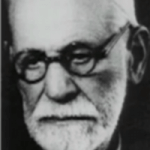I was born with two brains.
Let me be clear though. I’m not claiming that I was somehow favored with an exceptionally large heaping helping of neurological goodies far beyond the norm. To my knowledge my particular gene pool wasn’t necessarily Olympic-sized and overpopulated with excess ganglion. It hasn’t allowed me to be a lot smarter than you or anyone else for that matter. See, I simply can’t claim that for myself. I’d like to but… I can’t.
Know why?
Turns out that my birth attributes weren’t all that special at all. At least when it comes to a tally in the brain department. The fact of the matter is, you have two separate sets of brains in your body too. So does the rest of the human population. All seven billion of us.
Seven billion problems
With all these brains there arises a problem though that needs to be addressed. None of us came with an owner’s manual. Having two sets of brains living in one body can be difficult to get a handle on at least from street level.
It doesn’t help that one brain set is in the head and the other one is in the gut. Or that the latter feels but doesn’t think while the former thinks (like gangbusters) but can’t feel a heck of a lot – if anything.
Out of sync
You’d think, given such a different set of skills, that each brain would seek out the other to form some sort of a coalition. That would work well if they actually knew each other existed by more than a passing glance. But as they mature they don’t seem to. Like the group of metronomes in the video posted here these two brain sets just seem out of synchronization most of the time. There is some communication between them but mostly they’re left to do their own thing.
For example, the head-brain can deliver to us a complex cognizance of our world. It can sometimes be seen as a romantic view and what all that means and then… other times? It could be a negative black hole.
The gut brain handles the smelly [definitely unromantic] task of digestion. This sort of disconnect allows the head-brain room to get into some turbulent thought territory. When that happens is it produces a lot of “noise” for our intellect to deal with. Often that noise is expressed as stress which tends to drown out all chances for optimal productivity in the thinking-straight department.
So, why is that?
Just take a look at your computer. All sensitive systems need some sort of buffer from external factors that might be damaging to its integrity. Of course we don’t call them buffers we call them “firewalls” and “anti-virus programs” but the effect they have on the system is similar. It would be foolish if you were to turn off those services and go out surfing all over the web wouldn’t it? You’d be asking for trouble and it wouldn’t take very long to find it.
So you can imagine what it’s like for the beleaguered head-brain. Every day it steps out into the world and – sooner or later – it will fall into some crappy thought-company.
It desperately needs a buffer too.
In the video we see how that was accomplished. The metronomes finally got a buffering platform that allowed them to communicate with each other. That little bit of connection quickly turned around the chaos and made it into an organized mass of oneness. Like those metronomes we too could pull these brains into sync with a new platform. One that can cause a unique unbroken communication of energy between both sets of brains creating harmony from randomness.
It could become more of what was intended: a symphony of ideas coupled with the motivation to put them into action. That platform is the ocean of potential that comes as a standard factory installed capability within each of us. The only reason we don’t think we have ready access to it is because it’s too huge a pattern to fit into the confines of our head- brain.
The ugly-duckling gut brain though has a unique advantage. It doesn’t think it feels. That potentiality is energy-based. Easy for the super sensitive gut brain to know if it’s there or not. It can feel it.
That dynamic informs us of who we are: a feeling/thinking being capable of amazing things. Let’s hear it for a solid self-belief built on inner-togetherness.
More power to you.



 William Shakespeare made that observation about the connection between the mental state and the rate at which we are able to function some 400 years ago.
William Shakespeare made that observation about the connection between the mental state and the rate at which we are able to function some 400 years ago.